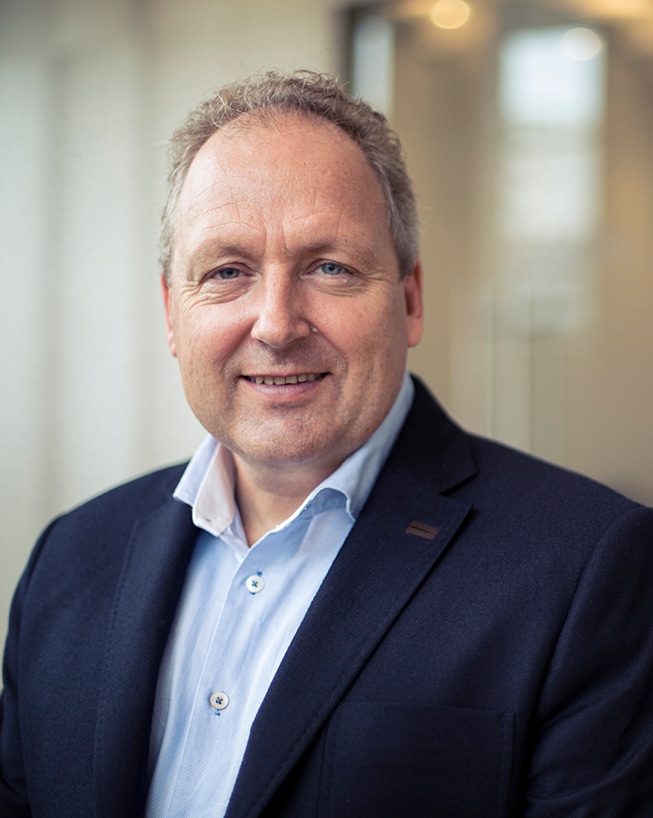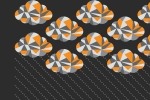
Interview with Rod Drury | CEO Xero

"Everything is globally connected and there is now the opportunity to go out and be a part of it."
Rod Drury is the founder and CEO of Xero, a leading international cloud accounting solution for small business. Rod was the NZ Herald Business Leader of the Year in 2012, a member of the NZ Hi-Tech Hall of Fame and was named NZ Hi-Tech Entrepreneur of the Year in 2006 and 2007.
So how does one of New Zealand's leading tech CEOs see the country's future unfold? Here's our extended conversation with Rod on the opportunities and challenges he sees:
PwC: So what's the biggest change you've seen in the world, since you started at Xero in 2006 and even earlier than that?
Rod: Nowadays, everyone's connected: you can now talk to anyone in the world. Certainly in New Zealand where we are far from everyone else, that's completely flipped our outlook. Everything is globally connected and there is now the opportunity to go out and be a part of it.
At Xero, we're not a local business, we're a global platform. We think one of the big trends is that everything is globalising. So where there were once regional-focused businesses that felt pretty protected, now a lot of them are gone. The economies of global platforms means we will have multiple international players with the resources to compete, no matter where we are in the world.
PwC: So how do you think that is playing out with the geopolitical developments we are now seeing around the world that are pushing back against globalisation?
Rod: There's a big contradiction going on as the world becomes more tribal – you only have to look at the Brexit results to see the world becoming more nationalistic. At the same time though technology is global. There's a sweet spot if you can come from a culture with a light touch, as New Zealanders do. We are incredibly well positioned for this. There is now an interesting dynamic where US companies historically saw huge consolidation because the capital was all coming from within the US. Now we have a world where distribution is global, everything is now available and non-US companies might be in a really good position to compete. It's going to be an interesting time to see whether those US companies start facing some headwinds they haven't encountered in the past.
PwC: Let's talk about technology. Obviously you're a technology-based organisation, of all the roles you've got in place now, how many are already automated and how many will be?
Rod: Lots of them. Much of the manual work we currently do is only manual because we haven't had time yet to automate the system. A good example is bank fees. In the early days it was manual-intensive, but as that moved up the priority list we've automated everything. We want our people to be designing the systems and building the machines, not doing manual work.
Revenue per employee is a key metric– it's one every business should monitor because it's your ultimate automation metric. It's something we track because it tells us how value is being added.
PwC: So what are your views on blockchain and do you think it's going to work?
Rod: Blockchain is an interesting piece of maths, but the national security people I have talked to say nothing of significance will be allowed to operate as a distributed system – it will all need to be centralised because of surveillance for example.
I think there will be some interesting, fairly trivial applications around the edges, even in the finance industry, but it's not going to become a core system. It's a solution looking for a problem really and it's counter to security needs that favour centralisation. If anything did get really big, it would also be regulated. Bitcoin, if it ever got really big, would get regulated.
PwC: That's an interesting take on that idea of trust and confidence. It's something that's not just important for Xero but for any company that is playing in that digital space.
Rod: Well first of all, you've either been hacked, or you don't know that you've been hacked. Baddies are in all the systems and security isn't about fixing things at the gate, it's about assuming people have got in.
So we have to rethink everything that we do. All those internal audit controls are now fascinating because you're looking to build those audit controls into your products as you develop them. It's what you have to do now, you can't do it after the product is built, and that's true for every business.
We know that when it comes to privacy and giving out data, human nature is that we will vote for convenience without caring about where our data ends up.
I think our biggest threat is from losing people's data, or someone deleting all of our data. That's why we controls in to ensure it won't happen. But it is a major risk.
PwC: So what are the biggest barriers to growth you're facing?
Rod: Our barriers are hiring people and then having an organisational design to support our growth.
Training is a major focus for us. You can't just train people once and expect they will use that knowledge for the next 20 years, you have to be constantly retraining your people. Our business is a good case study of that because we've seen technology driving that change. But in sectors like banking you've got regulation driving that change. So the purpose of training isn't just broadening the skills of people when they first join but making sure that they are constantly learning.
In terms of our structure, most other global companies will have a head office, usually in the US, and then a network of subsidiaries with a hierarchical structure. We're not. We're a globally distributed team, so lines on a page are very hard to draw. As a result, we're moving to a matrix model, one that's now evolving, where there are two-way commitments. Defining the relationships and those two-way mechanisms that support them is an important project for us. We're also establishing our common values which run throughout the business and underpin our global model.
PwC: Over the next 20 years, what do you think is going to change? And what's going to stay the same?
Rod: I think it's hard to predict the future on a linear basis. It's really interesting how a combination of parallel innovations can come together to make a change. You look at TVs and you might predict that innovation means having more and more pixels. But then you look at a parallel trend like increasing bandwidth. That, combined with the consolidation of entertainment companies and a whole bunch of other trends, suddenly means you're watching TV on your iPad and the content world is completely globalised. When I look forward, it's trying to pick those little things that absolutely come together.
Computing is going to move from where you put data in and get data out, to a world where everything is digitally connected and you get told the outcome. That's a fundamental shift for a lot of businesses. What we are doing now is try to automate everything, so your business is automatically connected to everything external and internal that happens. That will have a huge impact on the way we all work.
The timeframe for consolidation is also going to speed up in the future. We're only ten years old and we've already seen huge consolidation in our industry. There's a momentum here that is helping all technology companies towards consolidation and that will keep speeding up in the future.
PwC: How do you think the New Zealand economy is faring?
Rod: It's an interesting island economy and we'll probably be fine because we have good centralised management and are small enough that we can actually manage things like debt. However, we're a subscale market where there isn't the strong competition that we see overseas. We are too passive and we are missing an opportunity to get organised and achieve a lot more.


















